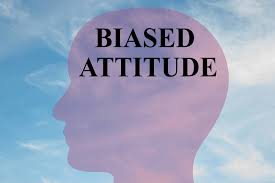A friend of mine recently questioned something she read on this website that presented what she called “a depressing view of aging.” She wondered why we’d included it if we’re determined to challenge ageism—which has been defined as “prejudicial attitudes toward older people, old age and aging itself.” Shouldn’t we present an entirely positive view of life’s later years?
Mostly we are positive, but as I told her, I wouldn’t want to visit—let alone write for—a website that didn’t also acknowledge the downside of growing older because, of course, there is a downside. Unfortunately, thanks to ageism, that’s all many people see, and before they’ve even reached middle age, they begin to dread growing older. Clinging to their youth, they refuse to think about their own later life because they associate old age with decrepitude, dementia and death.
There’s a tension between the need to challenge that mistaken, ageist view of aging—to present a positive view—and the need to acknowledge the reality: if you live long enough, eventually your health will decline.
I’m 81, and years ago I resolved this tension for myself when I came across the centuries-old idea of a green old age: a period when you might not be able to do all the things you used to do, as well as you used to do them, but there are also likely to be fewer demands on you and less stress. You may even be happier: studies show that happiness, satisfaction and a sense of well-being actually increase with age. If you think about it that way, you can look forward to your green years.
When exactly does a green old age begin and end? In England and the American colonies in the 16th, 17th and 18th centuries, people were said to be in it when they slowed down some. They were still fit and active but less than they used to be. Their green years ended and they were considered just plain old once they could no longer support themselves—or perhaps even take care of themselves—and needed help from others. But an individual’s chronological age didn’t really come into it; many people knew only roughly when they were born.
To me, that seems like a much better way to look at our ever-lengthening lifespans. For one thing, the older people are, the more different they are from others who are roughly the same age. As today’s geriatricians sometimes put it, if you’ve seen one 80-year-old, you’ve seen one 80-year-old. We age at our own speed in our own time.
Thanks to the wonders of modern medicine, a green old age today can last for many years. But not forever. How do older people feel, knowing that sooner, rather than later, their health will begin to fail—and that they’re not immortal after all?
I live in a retirement community, and I have friends and neighbors who used to be fit and active but are now struggling with illnesses and disabilities. Mostly, they cope amazingly well. Many have a sharp sense of humor and they’re enjoying life despite its downside. Their examples reassure me.
As for the fear of dying, I’m with Woody Allen, who once said, “I’m not afraid of death; I just don’t want to be there when it happens.” But dying scares me less now than it did when I was younger. And according to research, that’s true of most people.
Still and all, I was taken aback recently when I realized that, because I’m now over 80, by some people’s standards I’m “old-old” as opposed to “young-old.” That’s the terminology researchers use and, for all I know, doctors too. Instead of thinking in terms of how well older people function, they divide us up by chronological age.
When it hit me that I’m now old-old, I immediately felt more fragile. I wanted to protest that I haven’t even retired and I walk at least a mile a day. I reacted that way partly because the term “old-old” was a reminder that my end is almost in sight, but it was also the ageist in me: that’s not how I think of myself and I didn’t want others to think of me that way either.
All our lives, we’re subjected to negative images of older people and old age, and we tend to turn that against ourselves as we pass milestone birthdays—like, say, 65. Or 80. And that’s one of the drawbacks of defining life stages rigidly by age.
So hear me now: I may be old-old by some standards, but I’m still in my green old age.

Flora Davis has written scores of magazine articles and is the author of five nonfiction books, including the award-winning Moving the Mountain: The Women’s Movement in America Since 1960 (1991, 1999). She currently lives in a retirement community and continues to work as a writer.



